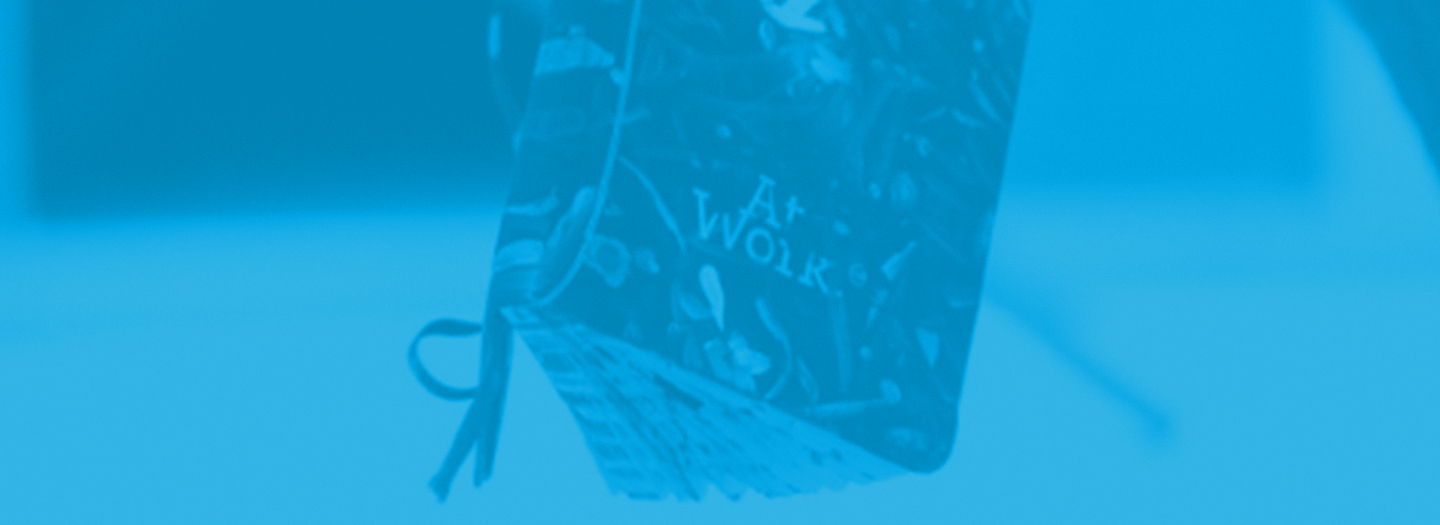The project: AtWork

AtWork is an itinerant educational format, conceived by Moleskine Foundation and Simon Njami, that uses the creative process to stimulate critical thinking and debate among the participants. It contributes to building a new generation of thinkers. The key element of AtWork is a workshop conducted by an artist or a curator on the chosen topic. The topic stimulates the collective discussion and a personal self-reflection on issues such as identity, culture and community. As a final output of the workshop, each student produces a personalized notebook, which fixes the process of self- reflection triggered by the workshop. Each notebook takes on its own character and is the reflection of a thought at work. The produced notebooks are exhibited in an art show, co-curated by the students themselves. The participants may then choose to donate their works to Moleskine Foundation collection of ‘artist notebooks’, unique pieces of work created by different artists on Moleskine notebooks, among which Bili Bidjocka, Antonio Marras, Maurice Pefura, Sigur Rós, Marina Spadafora, Pascale Marthine Tayou, Giorgio Vigna and many others. The collection is used to help support Moleskine Foundation‘s activities. All the workshop participants become part of the AtWork Community, a group of international artists, students, curators, cultural organizations, intellectuals, who believe that art can be a tool for social transformation.
AtWork - the Workshop
The AtWork process starts with the participants writing their interpretation of the chosen workshop theme. This is a way to get their thinking process started, which will be the starting point of the workshop group discussion and will later spill out into the conversation with the larger AtWork community. The workshop can last 3-5 days, during which the students, led by the artist/curator will have critical discussions around the theme chosen and will produce their notebooks. The workshop will follow an Input-Elaboration-Output structure. The main phases will consist of:
- Critical debate and discussion around the workshop theme
- Idea elaboration and definition
- Notebook production and restitution
Workshop participants
The participants can be students and young creative talents of different backgrounds. The more diverse is the group the better.
AtWork – The Exhibition
The exhibition is the first occasion for sharing and bringing the discussion outside the workgroup. This activity is key for the effectiveness of the workshop as thanks to the exhibition the workshop participants will interact and confront their ideas with an external audience, creating a wider discussion and strengthening their critical thinking experience. The notebooks produced by participants can be showcased physically in a national museum or in a local art gallery alongside with the on-line exhibition of the rest of the collection.
The co-creation the exhibition along with the hosting organization is part of the workshop’s activities, where the students can continue their debate as well as their personal process while acquiring some basic curatorial skills.
AtWork - The Community
The community building aspect of AtWork is at the core of the format. Through AtWork Facebook Group on-line we want the participants to be connected to a larger international and cross-cultural network of like-minded people as well as be part of a space, where they can exchange their experiences, share opinions and practices. The students can decide to donate their notebook produced during the workshop to Moleskine Foundation, adopting Creative Commons licenses. In this case, their notebook will become part of our collection (physically and on-line), thus sustaining Moleskine Foundation’s mission and future AtWork’s initiatives. The on-line part of the collection continues to inspire new young minds all over the world with the breadth of its creative proposal during various AtWork experiences. Being part of the collection is also a unique opportunity for the students to exhibit their work alongside prominent contemporary artists, architects, musicians, directors without any hierarchy of the works’ importance. This horizontal approach is at the core of the entire AtWork experience and allows the workshop participants to cross their local dimension boundaries and enter an international arena of discussion with wide and diversified audiences.
Co-founder and AtWork program advisor
Simon Njami
Simon Njami is an independent curator, lecturer, art critic, and writer. He is the co-founder and editor-in-chief of “Revue Noire.” Previously, Njami was the artistic director of the Bamako Photography Biennial 2000-2010, and co-curator of the first African pavilion at the 52nd Venice Biennale in 2007. He has curated a number of contemporary art and photography exhibitions, including Africa Remix(2004-2007) and the first African art fair in Johannesburg in 2008. In 2014, The Divine Comedy exhibition, created and curated by him, started a world tour at the MMK (Museum für Moderne Kunst) in Frankfurt, moving on to the SCAD Museum of Art in Savannah and the Smithsonian Museum of African Art in Washington, DC. He is the director of the Pan African Master Classes in Photography, a project created in partnership with the Goethe Institute; artistic director of the Donwahi Foundation (Abidjan, Ivory Coast); adviser to the Sindika Dokolo Collection (Luanda, Angola); secretary of the special jury of the World Press Photography Awards; artistic director of the first edition of Off Biennale (Cairo, 2015) and the 2016 and 2018 Dak’Art Biennale (Dakar, Senegal), the first and most important artistic event in Africa. Simon Njami is the co-founder and advisor of the At-Work format.